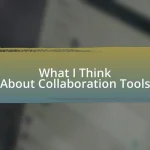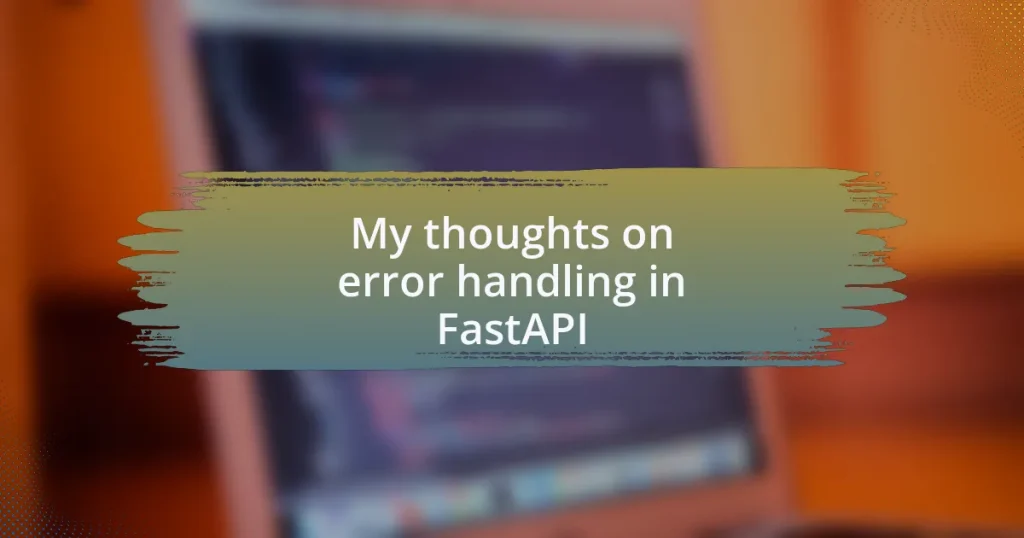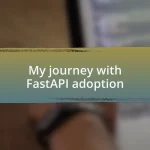Key takeaways:
- FastAPI is a modern web framework designed for efficient API development, emphasizing performance and ease of use.
- The framework automatically generates OpenAPI documentation, simplifying collaboration and saving time in the development process.
- FastAPI supports data validation with Pydantic models, ensuring incoming data is clean and reliable, which reduces debugging efforts.
Author: Charlotte Everly
Bio: Charlotte Everly is an accomplished author known for her evocative storytelling and richly drawn characters. With a background in literature and creative writing, she weaves tales that explore the complexities of human relationships and the beauty of everyday life. Charlotte’s debut novel was met with critical acclaim, earning her a dedicated readership and multiple awards. When she isn’t penning her next bestseller, she enjoys hiking in the mountains and sipping coffee at her local café. She resides in Seattle with her two rescue dogs, Bella and Max.
Overview of FastAPI framework features
FastAPI is a modern web framework designed for building APIs quickly and efficiently. What sets it apart is its focus on performance and ease of use, leveraging asynchronous programming features to handle multiple requests concurrently. I remember the first time I worked with FastAPI; I was amazed at how simple it was to create a functional API with just a few lines of code.
One of the standout features of FastAPI is its automatic generation of OpenAPI documentation. This means you’re not just coding; you’re providing accessible documentation for anyone who needs to consume your API. Isn’t it reassuring to know that documentation often becomes an afterthought, yet with FastAPI, it’s part and parcel of the development process? I’ve found that it saves so much time and fosters better collaboration among teams.
Additionally, FastAPI offers robust support for data validation through Pydantic models. This feature adds an extra layer of reliability, ensuring that the data your application receives is clean and valid. I have to say, there’s a certain peace of mind that comes with knowing that the framework will help catch errors before they escalate, allowing you to focus more on building great features rather than debugging.















